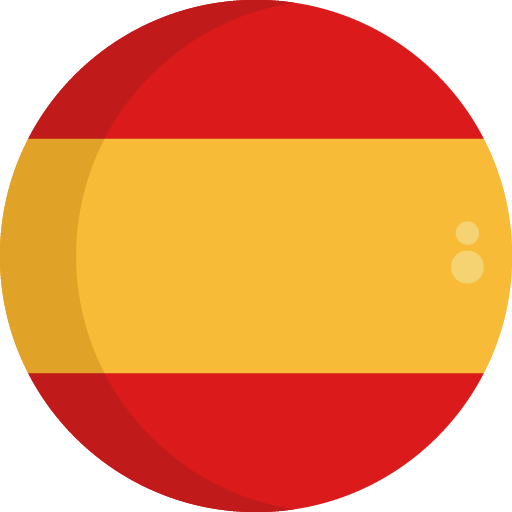Section 153
Jesus betrayed, arrested, and forsaken
Garden of Gethsemane on the Mount of Olives
| Matthew 26:47-56 | Mark 14:43-52 | Luke 22:47-53 | John 18:2-12 |
| 2Now Judas, who betrayed him, also knew the place, because Jesus had often met there with his disciples. | |||
| 47While he was still speaking, behold, Judas, one of the twelve, came. With him was a large crowd with swords and clubs, sent from the chief priests and elders of the people. | 43Immediately, as he was still speaking, Judas arrived, who was one of the twelve. With him was a large crowd with swords and clubs, sent by the chief priests, the scribes, and the elders. | 47aWhile he was still speaking, behold, a crowd approached, and the man called Judas, one of the twelve, was leading them. | 3So Judas took a cohort of soldiers and officers from the chief priests and Pharisees, and they went there with lanterns, torches, and weapons. |
| 4Then Jesus, knowing everything that would happen to him, went out and said to them, “Whom do you seek?” 5They answered him, “Jesus of Nazareth.” Jesus said to them, “I am he.” (Judas, who betrayed him, was also standing with them.) 6When Jesus said to them, “I am he,” they drew back and fell to the ground. 7So again he asked them, “Whom do you seek?” They said, “Jesus of Nazareth.” 8Jesus answered, “I told you that I am he. So if you are seeking me, let these men go.” 9He said this to fulfill the word he had spoken: “I have not lost a single one of those you have given me.” | |||
| 48Now his betrayer had given them a sign, saying, “Whomever I kiss, he is the one; arrest him.” 49Immediately he went up to Jesus and said, “Greetings, Rabbi!” And he kissed him. | 44Now his betrayer had given them a signal, saying, “Whomever I kiss, he is the one; arrest him and lead him away under guard.” 45When Judas came, he immediately went up to Jesus and said to him, “Rabbi! Rabbi!” And he kissed him. | 47bHe drew near to Jesus to kiss him, 48and Jesus said to him, “Judas, are you betraying the Son of Man with a kiss?” 49When those who were around him saw what was about to happen, they said to him, “Lord, shall we strike with the sword?” | |
| 50Jesus said to him, “Friend, for what purpose have you come?” Then they came forward, took hold of Jesus, and arrested him. | 46Then they took hold of Jesus and arrested him. | ||
| 51And behold, one of the men with Jesus stretched out his hand and drew his sword. He struck the servant of the high priest and cut off his ear. | 47But one of the bystanders drew his sword, struck the servant of the high priest, and cut off his ear. | 50Then one of them struck the servant of the high priest and cut off his right ear. | 10Then Simon Peter, who had a sword, drew it, struck the high priest's servant, and cut off his right ear. (The servant's name was Malchus.) |
| 52Then Jesus said to him, “Put your sword back into its place, for all who take the sword will die by the sword. 53Or do you think that I cannot call on my Father right now, and he will provide me with more than twelve legions of angels? 54How then would the Scriptures be fulfilled that say it must happen this way?” | 51But Jesus responded, “No more of this!” And he touched the man's ear and healed him. | 11But Jesus said to Peter, “Put your sword into its sheath; shall I not drink the cup that the Father has given me?” 12Then the cohort of soldiers, along with its commander and the Jewish officers, arrested Jesus, bound him, | |
| 55In that hour Jesus said to the crowds, “Have you come out to arrest me with swords and clubs as you would against a robber? I sat daily with you, teaching in the temple courts, and you did not arrest me. 56But all this has taken place so that the Scriptures of the prophets would be fulfilled.” Then all the disciples left him and fled. | 48Then Jesus said to them, “Have you come out to arrest me with swords and clubs as you would against a robber? 49I was with you daily, teaching in the temple courts, and you did not arrest me. But these things are happening so that the Scriptures may be fulfilled.” 50Then they all left him and fled. 51Now a certain young man was following Jesus, wearing nothing but a linen cloth. The young men tried to seize him, 52but he left the linen cloth behind and ran away from them naked. | 52Then Jesus said to the chief priests, the officers of the temple, and the elders who had come out against him, “Have you come out with swords and clubs as you would against a robber? 53I was with you daily in the temple courts, and you did not lay a hand on me. But this is your hour, when the power of darkness reigns.” | |
Notes
Mount of Olives
The mountainous ridge called the Mount of Olives stretches totay from the Hebrew University Mount Scopus campus in the north to the Jewish cemetery and beyond, to the village of Silwan in the south. Between these two ends of the mountain are the olive trees from which the mountain takes its name. The area at the bottom of the mountain would have been the place for the olive gardens and an olive press, “Gat shemen” in Hebrew, from which the name “Gethsemane” comes.
The gospels record on more than one occasion Jesus’ sorrow for Jerusalem as he made his way down the slopes of the Mount of Olives. It was a path he would have known from childhood from His many visits to Jerusalem.
Down the road from Bethphage He came riding on a donkey colt with palm branches symbolic of Judaea strewn along the way. “Hosanna!” (“save now!”) was the cry upon the lips of the people (Matthew 21:1-9). This prayer from Psalm 118:25 was a request for salvation. Yet Jesus knew that these cries would be changed within a week to “Crucify him!” He wept again for Jerusalem, for He knew what would befall the people in less than one generation as the city would be besieged and taken.
Garden of Gethsemane
Towards the end of Palm Sunday Road, we come to Gethsemane. Gethsemane means “oil press” or “oil stores”. In Hebrew it is gat shemanim. It is a place where we find ancient olive trees and olive presses and storage areas.
Gethsemane is the place of many events in the life of Jesus: his betrayal, teaching of his disciples, and time spent alone with his Father. Luke 21:37 tells us that Jesus slept here at night; Luke 29:39 tells us that it was his custom to go here, and John 18:2 tells that Jesus often met his disciples here. The present location fits the description of Gethsemane at the time of Jesus and this tradition has been maintained since about 330 A.D. In this area, we find the Garden of Gethsemane, the Basilica of the Agony, and the Cave of Betrayal.
The Franciscan Church of All Nations contains the Garden of Gethsemane outside and the Basilica of the Agony within. In the garden, there are eight olive trees that may well be over 1,000 years old. The olive tree does not die, but continues to live even if cut down, by producing new shoots from its roots.
The Garden of Gethsemane is the place where Jesus left his disciples and asked them to sit while he went to pray (Matthew 26:36). He then took Peter and the two sons of Zebedee (James and John) and began to be sorrowful and very heavy. He asked them to wait there and keep watch for him as he went a little farther where he fell on his face and prayed (at the rock in the Basilica of Agony) (Matthew 26:37 46). It is interesting to note that Peter, James and John were the three who witnessed the transfiguration of Jesus and the glory of it, and now they were witnessing the agony and the perfect submission of Jesus to the will of his Father.



















